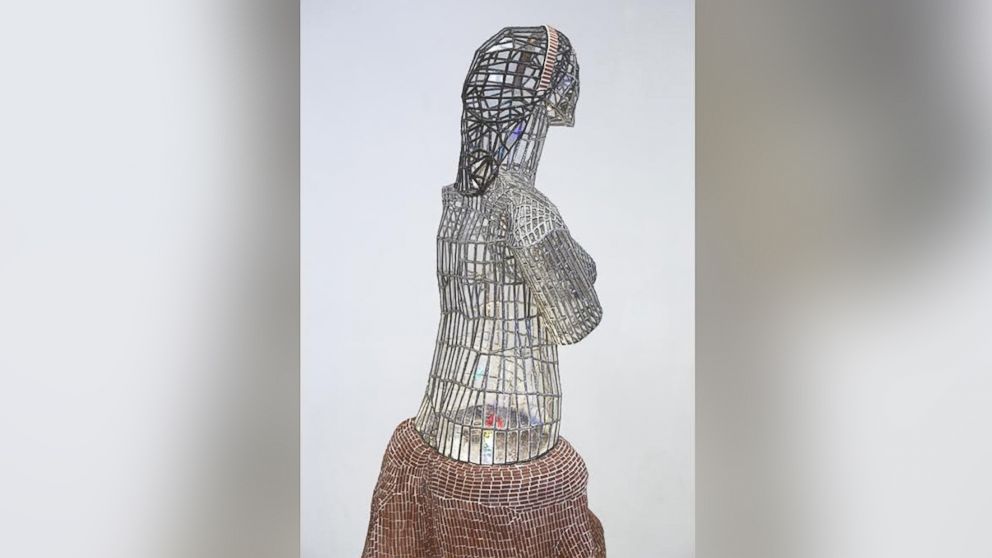Parents face $132,000 claim after kid knocks over sculpture
Parents of a 5-year-old Kansas boy were hit with a $132,000 bill after their son knocked over an art sculpture on display at a local community center.
Surveillance video captured the little boy reaching for the sculpture, called “Aphrodite di Kansas City” on display in the lobby of the Tomahawk Ridge Community Center in Overland Park, Kansas, when it toppled over.
Then a few days later, the family received a $132,000 claim from the city of Overland Park’s insurance company, saying that the piece had been damaged beyond repair.
“You’re responsible for the supervision of a minor child… your failure to monitor could be considered negligent,” the insurance letter read in part.
“I was surprised, absolutely, more so offended to be called negligent,” said the boy’s mother Sarah Goodman. “They were treating this like a crime scene.”
The sculpture’s artist, Bill Lyons, told ABC News it took him about two years to create the piece and it was listed for sale at $132,000. He examined the piece himself, he said, and concluded it could not be repaired.
“It’s beyond my capabilities and desires to rebuild it,” he said.
City officials say the piece was not “permanently attached” but it was secured to the pedestal with clips and that it was “a not an interactive piece.”
“We’ve had other pieces there [and] we’ve not had problems,” said city spokesman Sean Reilly. “We’ve not had this situation… we’ve not had kids climb on our pieces.”
But Goodman argued the sculpture should have been better secured. She also disputes the city’s claim that her child wasn’t being supervised. Goodman said she and her husband were out of frame of the surveillance camera, saying their goodbyes during a wedding reception that they were leaving, when the incident occurred.
“No one would ever to expect that to come into a place that kids are invited and have to worry about a $132,000 dollar piece of art falling on their child,” Goodman said. “Because he didn’t maliciously break that. It fell on him. It was not secure, it was not safe -- at all.”
ABC News' Katherine Carroll contributed to this report.




